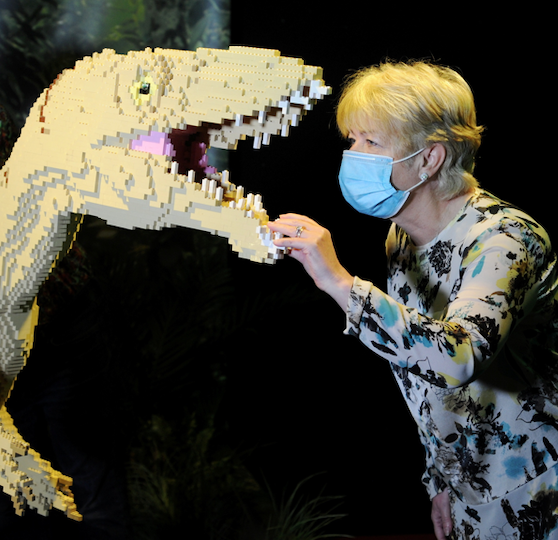The importance of fundraised income to charities has never been in sharper relief than over the last four months, and at a time when fundraising has never been harder. Many fundraising activities are still on hold as a result of the lockdown – our report with PWC, NCVO & CFG estimates than on average (and we know this figure will be different for every single charity) charities’ incomes were 29% below budget to mid-May. On average, organisations are estimating their annual income will be down by 24%, suggesting roughly a £12 billion reduction in sector income this year.
Unsurprisingly, we have already started to see a wave of redundancy programmes being announced across the sector. Every single lost job means, in some way, a reduction in the activities of that charity delivering its charitable objectives. It means a reduction in activity for public good at a time when we should surely be doubling down on that activity.
All this has meant huge pressures on fundraisers all around the UK, whether you have maintained your full time roles in extraordinarily difficult times, whether you are currently furloughed because your organisation has decided there is no work for your specific role at the moment, or whether you are now part of a redundancy programme.
And yet the stories I have heard from fundraisers themselves have been both heart- warming and inspiring. Not only have your organisations flexed to meet increased need, you have flexed to continue to inspire supporters and raise vital funds. Your positivity in the face of adversity has been second to none.
With no physical events possible you have moved into the virtual world; whether taking part in the 2.6 Challenge or developing your own virtual events.
Those of you at senior levels have been involved in difficult decisions with your peers and CEOs, with your trustees, as to the right approaches to take; whether you should simply stop planned activities or try to take them online, how to save money at the same time as investing in new and different approaches, whether colleagues should be furloughed or made redundant.
At more junior levels, you have often been in the melee of uncertainty, being informed of changing plans on an all too regular basis and going over and above to respond and deliver. You may have been furloughed and un-furloughed, been working in awkward spaces at home, and done more Zoom in a week than many of us would want to do in a lifetime. At the same time many of you have still found time to reach out to peers to offer support.
If anyone ever had any doubts that fundraising should be recognised through a Royal Charter, then I am sure those doubts have been dispelled. You have stepped up, continued to inspire your donors, and are a true credit to the charity sector and to the profession.
And my message to chief executives and trustees is simple: listen to, support, and invest in your fundraising staff and teams. Now, and moving forward. They are the people who are critical to getting you through this crisis, generating the income now and into the future that will enable you to continue to meet your charitable objectives.
At the Chartered Institute we are absolutely resolute that our current focus has to be on continuing to support our members in these extraordinary times.
We are investing extra resources in supporting our members at this crucial time, with a whole new suite of professional and career development content coming online over the next weeks and months. We are offering our individual members who are made redundant a few extra months of free membership, and we are working with our organisational members to offer our support to fundraisers in their teams who are made redundant. And we are waiving the joining fee for new members, to help you access the support you need at this time.
A healthy charity sector is vital to building a better future for the country. Fundraisers and fundraising are vital to a healthy charity sector. ■
Peter Lewis is the CEO of the Chartered Institute of Fundraising
Latest News
-
King visits charity founder days before she dies to invest her as a Dame
-
2025: Most-read opinion, diaries, Q&As and more
-
Arrests made in global charity donation theft probe
-
2025: Most-read news
-
Regulator probes ‘serious and significant’ safeguarding failings at Christian charity
-
Government seeks experts to join Civil Society Covenant body
Charity Times video Q&A: In conversation with Hilda Hayo, CEO of Dementia UK
Charity Times editor, Lauren Weymouth, is joined by Dementia UK CEO, Hilda Hayo to discuss why the charity receives such high workplace satisfaction results, what a positive working culture looks like and the importance of lived experience among staff. The pair talk about challenges facing the charity, the impact felt by the pandemic and how it's striving to overcome obstacles and continue to be a highly impactful organisation for anybody affected by dementia.
Charity Times Awards 2023
Mitigating risk and reducing claims

The cost-of-living crisis is impacting charities in a number of ways, including the risks they take. Endsleigh Insurance’s* senior risk management consultant Scott Crichton joins Charity Times to discuss the ramifications of prioritising certain types of risk over others, the financial implications risk can have if not managed properly, and tips for charities to help manage those risks.
* Coming soon… Howden, the new name for Endsleigh.
* Coming soon… Howden, the new name for Endsleigh.
Better Society

© 2021 Perspective Publishing Privacy & Cookies











Recent Stories